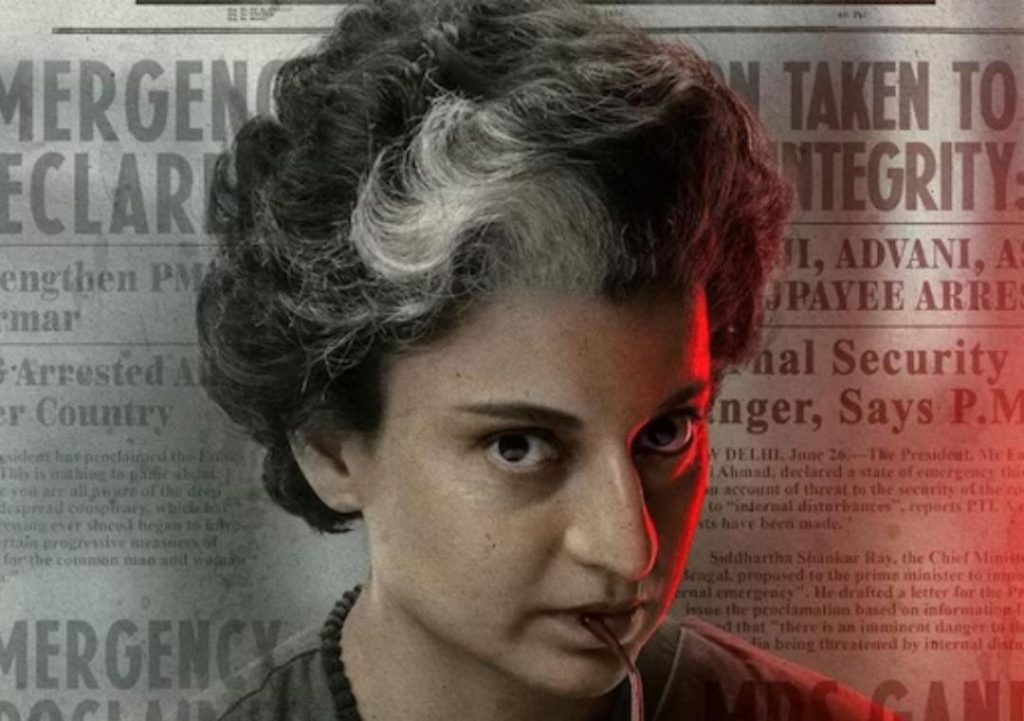
Author Coomi Alleges Distortion of Facts in Kangana’s ‘Emergency’
The film industry is no stranger to controversy, and recently, a new row has erupted over Kangana Ranaut’s latest production, ‘Emergency’. This time, it’s not just the content of the film that’s under fire, but also the claims made by the production house and Netflix about the film’s inspiration. Author Coomi Kapoor, whose book ‘The Emergency: A Personal History’ was allegedly the basis for the film, has accused the production house and Netflix of intentionally and maliciously distorting facts and breaching their contract with her.
In an interview, Coomi Kapoor alleged that the production house and Netflix had used her name and book to promote the film, without her permission or consent. She stated that they had breached the contract by using her name and book for the film’s promotion, and that the film was not based on her book as claimed.
Kangana Ranaut’s production house, Manikarnika Films, and Netflix had earlier announced that ‘Emergency’ was inspired by Coomi Kapoor’s book, which is a personal account of the author’s experiences during the Emergency period in India in the 1970s. The film, which is a biopic on Indira Gandhi’s 21-month regime, had generated a lot of buzz due to its bold and unconventional depiction of the period.
However, Coomi Kapoor has now come forward to dispute these claims, stating that the film is not a faithful adaptation of her book. She alleged that the production house and Netflix had taken creative liberties with the story, and that the film was not based on her book as claimed.
Coomi Kapoor’s allegations have sparked a heated debate in the film industry, with many questioning the validity of her claims. Some have pointed out that the film is a work of fiction, and that it’s not uncommon for films to take creative liberties with real events and people.
However, Coomi Kapoor’s allegations have also raised important questions about the accuracy and authenticity of films based on real events and people. The use of real-life events and people as inspiration for films is a common practice in the industry, but it’s crucial that filmmakers are truthful about their sources and do not misrepresent or distort facts for commercial gain.
In the past, there have been several instances where films have been accused of distorting facts or misrepresenting real-life events. For example, the 2019 film ‘The Irishman’ was accused of distorting facts about the life of Jimmy Hoffa, the former leader of the International Brotherhood of Teamsters labor union.
Similarly, the 2017 film ‘The Post’ was accused of distorting facts about the Pentagon Papers scandal, which was a major political scandal in the United States in the 1970s.
In both cases, the filmmakers were accused of taking creative liberties with the story, and of misrepresenting real-life events and people for commercial gain.
In the case of ‘Emergency’, Coomi Kapoor’s allegations have raised important questions about the accuracy and authenticity of the film. If the production house and Netflix have indeed distorted facts and breached their contract with Coomi Kapoor, then it’s crucial that they take responsibility for their actions and apologize to the author.
It’s also important for the film industry to take note of Coomi Kapoor’s allegations and to ensure that filmmakers are truthful about their sources and do not misrepresent or distort facts for commercial gain. The use of real-life events and people as inspiration for films is a valuable part of the industry, but it’s crucial that filmmakers do it in a responsible and ethical manner.
In conclusion, the row over ‘Emergency’ is a timely reminder of the importance of accuracy and authenticity in films based on real events and people. Coomi Kapoor’s allegations have raised important questions about the film’s accuracy and authenticity, and it’s crucial that the production house and Netflix take responsibility for their actions and apologize to the author.






